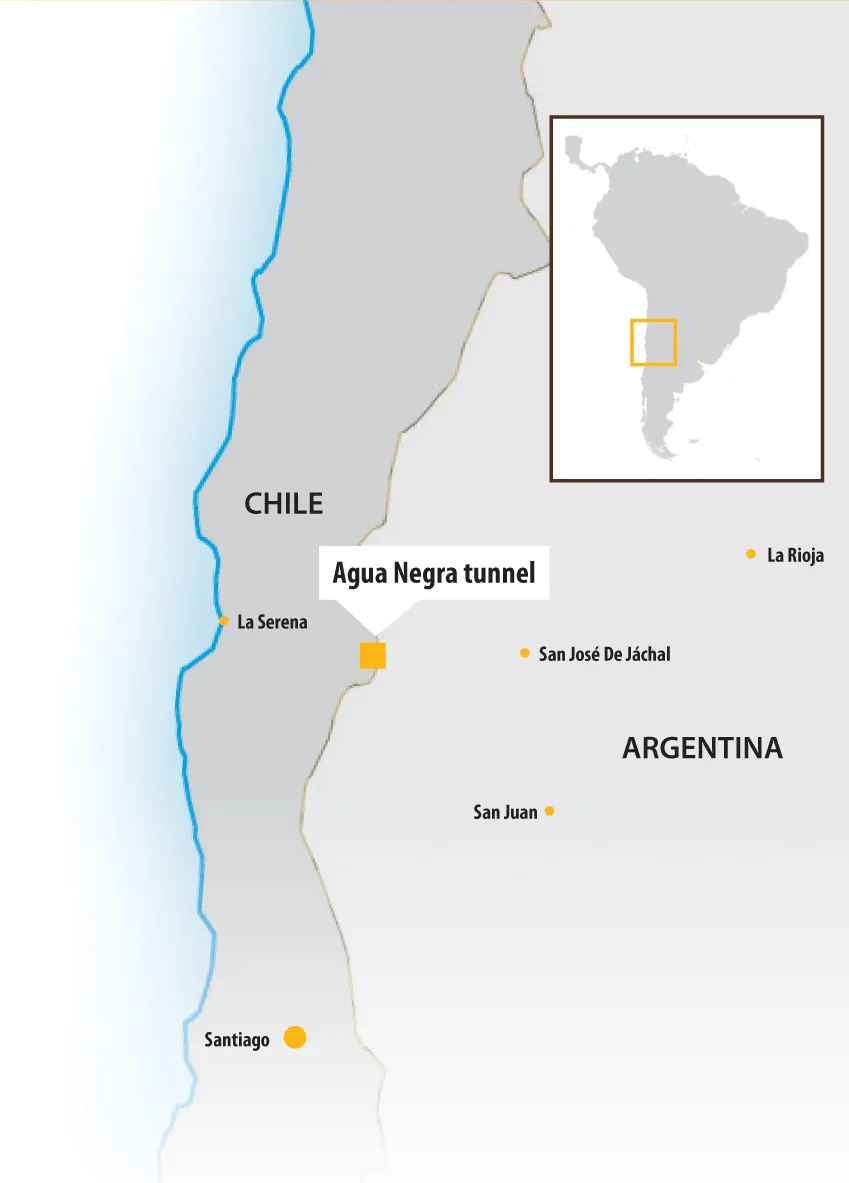The Argentinean Senate is giving preliminary approval for the Agua Negra tunnel project. This is a key stage in the planning for the tunnel, which will link Argentina and Chile. The preliminary stages involve discussing the Maipu Treaty and various procedural agreements between the governments of both countries, an important step forward from the frosty relations between the two nations in the past. Further discussions will be held by the authorities in Argentina while the Chilean Government will be evaluat
February 17, 2015
Read time: 2 mins
The Argentinean Senate is giving preliminary approval for the Agua Negra tunnel project. This is a key stage in the planning for the tunnel, which will link Argentina and Chile. The preliminary stages involve discussing the Maipu Treaty and various procedural agreements between the governments of both countries, an important step forward from the frosty relations between the two nations in the past. Further discussions will be held by the authorities in Argentina while the Chilean Government will be evaluating the issues during March of this year. Once both governments have given their final approvals, the planning for the tender process will be able to commence and this process looks likely to get underway from March 2015 onwards.
The Agua-Negra tunnel will be an extremely important transport route between Argentina and Chile and will replace other mountain passes through the Andes that are at altitude and difficult to access during winter months, suffering regular closures due to heavy snowfall. From a technical perspective the height of the portals for the tunnel will pose some challenges for construction but the rock itself should be fairly competent, allowing conventional processes and methods.
The Agua-Negra tunnel will be an extremely important transport route between Argentina and Chile and will replace other mountain passes through the Andes that are at altitude and difficult to access during winter months, suffering regular closures due to heavy snowfall. From a technical perspective the height of the portals for the tunnel will pose some challenges for construction but the rock itself should be fairly competent, allowing conventional processes and methods.






